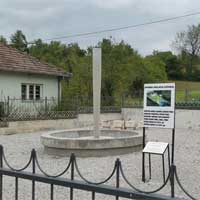Serbia violates international law by refusing to grant the status of civilian war victims to the victims of Sjeverin

 Regarding the 23rd anniversary since the crime in Sjeverin
Regarding the 23rd anniversary since the crime in Sjeverin
On Thursday, 22nd of October, the opening of the memorial to the victims in Sjeverin will mark the 23rd anniversary of the abduction and murders of 16 Serbian citizens of Bosnian nationality. The Humanitarian Law Center (HLC) and the Sandžak Committee for the Protection of Human Rights and Freedoms (the Sandžak Committee) caution that, from the point of view of international law, it is unacceptable for the Republic of Serbia not to approve the status of civilian war victims to the victims of Sjeverin. At the same time, the HLC and the Sandžak Committee state that the engagement of the local community and the municipality of Priboj in the commemoration of this crime and their help in constructing the monument are a rare example of responsible attitude on part of the institutions in the former Yugoslavia towards the victims, who come from an ethnic minority community.







 With regard to the statement made by the President of the Republic of Serbia, Tomislav Nikolić, in the “Interview 20” show on Radio Television Bosnia and Herzegovina, the Humanitarian Law Center (HLC) calls on President Nikolić, together with the other institutions concerned, to take concrete steps which will show that this symbolic act represents the beginning of an honourable and responsible stance by the state of Serbia when it comes to dealing with the legacy of crimes committed in the name of the Serbian people. This is the only way for President Nikolić to wipe away the justified suspicion that many people entertain relating to the honesty of his apology, which has been reinforced by repeated denial that genocide was committed in Srebrenica.
With regard to the statement made by the President of the Republic of Serbia, Tomislav Nikolić, in the “Interview 20” show on Radio Television Bosnia and Herzegovina, the Humanitarian Law Center (HLC) calls on President Nikolić, together with the other institutions concerned, to take concrete steps which will show that this symbolic act represents the beginning of an honourable and responsible stance by the state of Serbia when it comes to dealing with the legacy of crimes committed in the name of the Serbian people. This is the only way for President Nikolić to wipe away the justified suspicion that many people entertain relating to the honesty of his apology, which has been reinforced by repeated denial that genocide was committed in Srebrenica.